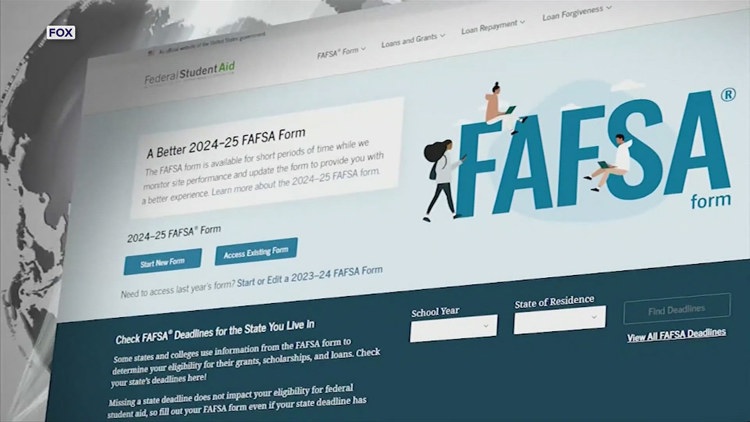WASHINGTON — A measure to ensure the federal student aid form opens up annually by October 1 passed the U.S. House Friday with overwhelming bipartisan support.
The effort — which passed 381-1 — came after the U.S. Department of Education faced major backlash over the botched rollout of the 2024-25 Free Application for Federal Student Aid, or FAFSA. California Democratic Rep. Zoe Lofgren was the only lawmaker to vote against the bill.
Though the form got a makeover after Congress passed the FAFSA Simplification Act in late 2020, users faced multiple glitches and technical errors throughout the form’s soft launch in December and past its full debut in January, prompting processing delays and gaps in submissions.
The department has worked to correct these glitches and close that gap while also fixing major issues that prevented parents without Social Security numbers from completing the form.
Adding another complication, the department said in August it would use a phased rollout of the 2025-26 form in an attempt to address any errors that might arise before it opens up to everyone — making the application fully available two months later than usual.
Though the department legally has until Jan. 1 to roll out the form, it typically launches Oct. 1.
U.S. Rep. Erin Houchin, an Indiana Republican and member of the U.S. House Committee on Education and the Workforce, in July introduced the bill to standardize that deadline.
“I’m especially frustrated considering the Department of Education has had three years to simplify the FAFSA as Congress has dictated,” Houchin said during floor debate Friday.
She also referenced recent findings from the Government Accountability Office, including that nearly three-quarters of all calls to the call center went unanswered in the first five months of the 2024-25 rollout.
“We want this program to work — we want to make sure that children and families that want to send their kids to college have the availability to do that and that the FAFSA is available and workable,” she added.
U.S. Rep. Bobby Scott, ranking member of the House education panel, echoed his support during the floor debate, saying the measure will “help ensure that even more students have the information they need in a timelier manner to access Pell Grants and other vital student aid.”
Scott initially opposed the effort when the committee took it up in July out of concerns that the implementation deadline could force the department to roll out an incomplete form on Oct. 1 of this year.
“However, because we’re now considering the bill after Oct. 1, the deadline will apply next year, 2025, and that gives the department ample time to make improvements and fix any lingering issues,” the Virginia Democrat said.
U.S. Sen. Bill Cassidy, a Louisiana Republican, introduced a companion bill in July.
The bill was referred to the U.S. Senate Committee on Health, Education, Labor and Pensions, where Cassidy serves as ranking member. After Republicans won a Senate majority in the Nov. 5 elections, Cassidy is in line to chair the panel next year.
This article originally appeared in the Alabama Reflector, an independent, nonprofit news outlet. It appears on FOX54.com under Creative Commons license CC BY-NC-ND 4.0.



